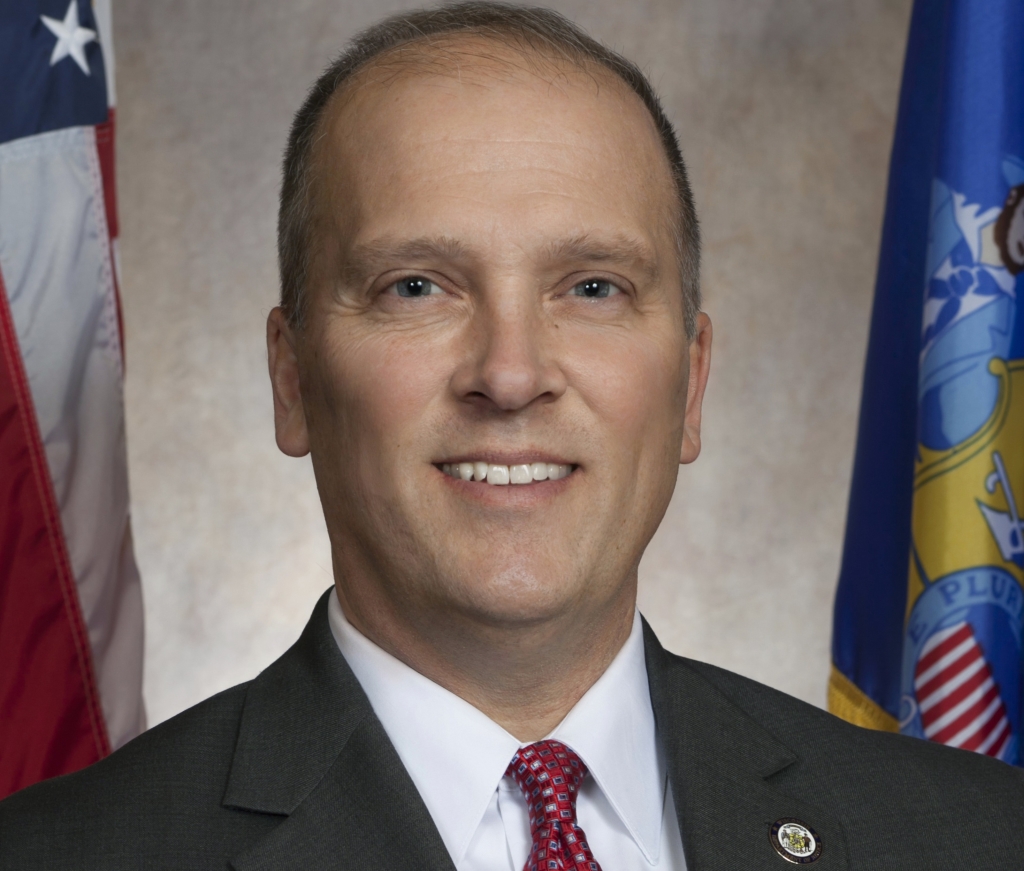Why Courts Have Limited Photo ID
Two recent cases have made Wisconsin ground zero for voting rights.
In recent days there has been a rash of decisions by Federal judges invalidating state laws restricting voting rights. Notably, this includes judges generally considered conservative. Wisconsin has two of these cases, decided in quick succession.
In the Eastern District Judge Lynn Adelman (a former Democratic legislator seen as a liberal) initially ruled that the Wisconsin law was unconstitutional. But a three-judge panel of the 7th Circuit Court of Appeals reversed Adelman’s decision. The full court tied 4-4, leaving the panel’s decision in place. Judge Adelman then ruled that, in light of the 7th Circuit ruling, he had no authority to grant relief.
However, a second decision by Adelman in response to a new legal challenge was appealed to the same three-judge panel, which ruled that while Wisconsin’s ID requirement was constitutional there needed to be provisions for those having great difficulty in producing the documentation needed to obtain a photo ID.
The same judges who rejected Judge Adelman’s original ruling, wrote that:
The right to vote is personal and is not defeated by the fact that 99 of other people can secure the necessary credentials easily. Plaintiffs now accept the propriety of requiring photo ID from persons who already have or can get it with reasonable effort, while endeavoring to protect the voting rights of those who encounter high hurdles. This is compatible with our opinion and mandate, just as it is compatible with Crawford. Indeed, one may understand plaintiffs as seeking for Wisconsin the sort of safety net that Indiana has had from the outset.
In a 3rd decision, Judge Adelman ruled that voters could submit an affidavit swearing that they are eligible voters but face an unreasonable impediment in getting a voter ID. The affidavit would contain the following language:
I declare under penalty of perjury that I am the individual identified below, and that I have been unable to obtain acceptable photo identification with reasonable effort. This is due to the following reason(s):
__ Lack of transportation
__ Lack of birth certificate or other documents needed to obtain photo ID
__ Work schedule
__ Disability or illness
__ Family responsibilities
__ Other (please identify):________________
Wisconsin Attorney General Brad Schimel appealed Judge Adelman’s decision to the 7th Circuit Court of Appeals. The three-judge 7th Circuit panel issued a stay of Adelman’s injunction, criticizing him for issuing “an injunction that permits any registered voter to declare by affidavit that reasonable effort would not produce a photo ID—even if the voter has never tried to secure one, and even if by objective standards the effort needed would be reasonable (and would succeed)” rather than attempting to identify voters who are eligible to vote but for whom the the state’s procedures fall short.
Meanwhile, another case challenging the law was brought in Wisconsin’s Western District. In his recent decision, Judge James Peterson ruled that:
The Wisconsin experience demonstrates that a preoccupation with mostly phantom election fraud leads to real incidents of disenfranchisement, which undermine rather than enhance confidence in elections, particularly in minority communities. To put it bluntly, Wisconsin’s strict version of voter ID law is a cure worse than the disease. But I must follow Frank and Crawford [two previous cases] and reject plaintiffs’ facial challenge to the law as a whole.
Describing Wisconsin’s alternative to the regular photo ID, called the “ID Petition Process” (IDPP), as “pretty much a disaster,” Judge Peterson ordered that anyone entering the IDPP would promptly get a receipt valid for voting.
Judge Peterson also ruled against several other of the provisions of the Wisconsin law including the restriction limiting municipalities to one location for in-person absentee voting, limits on the time for in-person absentee voting, the increase of the residency requirement from 10 days to 28 days, the prohibition on distributing absentee ballots by fax or email, and the prohibition on using expired, but otherwise qualifying, student IDs.
Wisconsin is hardly the only state seeing successful challenges to restrictions on voting in the past couple of weeks:
-The 5th Circuit Court of Appeals, generally considered the nation’s most conservative, ruled 9-6 against Texas’ restrictive voter identification law. The 5th Circuit sent the case back to the trial court asking it to identify a procedure to make it easier to vote. It also directed the trial court to determine whether Texas acted with discriminatory intent in passing its law.
Under an agreement between the state and the Obama administration and voting-rights advocates, people lacking one of the required IDs will now be able to provide voter registration cards, certified birth certificates, utility bills, government checks, pay stubs or bank statements with their names and addresses on them in the November election. Texas left open the possibility of an appeal to the US Supreme Court.
-The same day that Judge Peterson ruled against Wisconsin’s restrictions, a 4th Circuit panel ruled that the intent of North Carolina’s voter restriction is racially discriminatory. It rejected the state’s photo identification system and the banning of Election Day registration and early voting. The court found that although the reason for imposing the restrictions was racially motivated, it was not necessary to reimpose federal supervision of that state’s elections; striking down the law was enough.
While cautioning “that statements from only a few legislators, or those made by legislators after the fact, are of limited value,” in a footnote the court quoted some of the most outrageous, including this from a Daily Show interview of a legislator: “If [the law] hurts the whites so be it. If it hurts a bunch of lazy blacks that want the government to give them everything, so be it.”
-In North Dakota a federal district judge wrote that: “Voter fraud in North Dakota has been virtually non-existent … the record is replete with concrete evidence of significant burdens imposed on Native American voters attempting to exercise their right to vote in North Dakota.”
In each of these cases the judges have had to deal with the U.S. Supreme Court’s 2008 decision upholding Indiana’s voter ID law, called Crawford v. Marion County Election Board, or Crawford for short. Justice John Paul Stevens, now retired and considered a liberal, wrote the decision. Judge Richard Posner, a very influential conservative, wrote the 7th Circuit decision that the Supreme Court upheld.
Significantly, both judges have come to regret that decision. In a C-Span interview, Justice Stevens described Crawford as an “unfortunate decision.” Judge Posner has gone further. When a three-judge 7th Circuit panel overturned Judge Adelman’s ruling that the Wisconsin law was unconstitutional, its decision was based on Crawford. When appealed to the full court, Judge Posner wrote a 40 page dissent, arguing that it was time to reconsider Crawford:
Judge [Terrance] Evans, dissenting from our decision in Crawford, called the Indiana law “a not too thinly veiled attempt to discourage Election Day turnout by certain folks believed to skew Democratic.” … But he cited no evidence to support his conjecture—a conjecture that now seems prescient, however.
Nationally more and more courts, including judges regarded as conservative, are moving towards the Posner position. The litigation against the state restrictions, including that in Wisconsin, have supported several propositions, support that was missing at the time of Crawford:
- That the type of fraud they are claimed to fight is rare or nonexistent. In Wisconsin, the Attorney General was unable to point to any concrete examples.
- That there are citizens who find it hard or impossible to produce the type of documentation required for an ID by states like Wisconsin.
- That the motivation behind the laws is partisan, to make it more difficult for low-income voters likely to vote Democratic to vote.
- That the effect, if not the aim, is disproportionately on African Americans, Hispanics, and Native Americans.
Citizens have a constitutional right to vote. Arguments that IDs are required for other purposes do not impress the courts. Unlike voting there is no constitutional right to travel by air or get a credit card.
In both cases, those challenging the Wisconsin requirements have appealed to the full court. One of the judges on the panel that rejected the previous Adelman decision has since retired, leaving 9 judges in the court, making a tie vote unlikely. Whatever the Federal Appeals Court decides is likely to stand, at least so long as there are only eight justices on the Supreme Court.
In recent years over half the states—generally under Republican control—have made voting more difficult by requiring voter IDs or cutting back the hours of voting. Under Scott Walker and a Republican legislature, Wisconsin emerged as a leader in that campaign. Ironically it may end up as a leader in convincing the federal judiciary to trim back those efforts.
Court Watch
-
No Unemployment Benefits For Worker Making Homophobic Remarks
 May 17th, 2022 by Gretchen Schuldt
May 17th, 2022 by Gretchen Schuldt
-
Appeals Court Upholds Injunction Against Abortion Protester
 Mar 13th, 2022 by Gretchen Schuldt
Mar 13th, 2022 by Gretchen Schuldt
-
80% of State’s Judicial Races Uncontested
 Feb 20th, 2022 by Gretchen Schuldt
Feb 20th, 2022 by Gretchen Schuldt






















